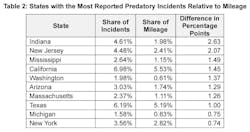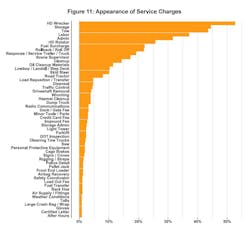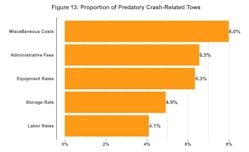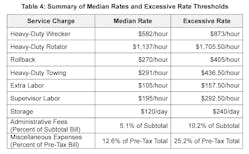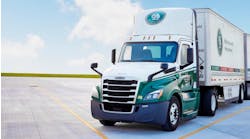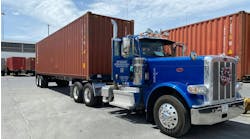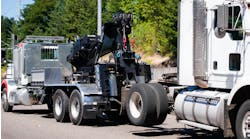A tow truck can be a welcome sight for truck drivers after a collision or a breakdown. But sometimes, that tow truck can signal unwanted services, surprise fees, and holding equipment “hostage” until those fees—sometimes thousands of dollars—are paid.
Media outlets and authorities have opened investigations into predatory towing across the country. In Chicago, a towing company has been known to wave truckers through an overpass where they know the trailer will get stuck just so they can tow the trailer away and charge for its release—up to $17,000 in one case. In Memphis, one trucker stayed in his truck for 33 hours to avoid a predatory tow, local news reported. The police were called but could not intervene because they were involved in a lawsuit with the same towing company.
See also: Roadmap to resolving roadside breakdowns
As part of its investigation into how predatory towing affects the trucking industry, the American Transportation Research Institute conducted a survey seeking information from drivers and fleet leaders on the troubles they experience with predatory towing. ATRI released its findings this week.
“Predatory towing is a costly issue for motor carriers as well as compliant towing companies, and it has been overlooked for too long,” Shawn R. Brown, Cargo Transporters VP of safety, said in an ATRI press release. “With reliable data analysis and a thorough regulatory review, ATRI’s report sheds light on the sources of the problem and paths forward for addressing it by both regulators and trucking fleets.”
The report includes findings such as types of predatory practices identified through the survey; identification and analysis of predatory practices in billing; and ways fleets and motor carriers can protect themselves.
Types of predatory towing practices
There are eight primary types of predatory towing practices, and respondents were asked to rank each practice based on its impact on the company’s operations.
Survey results proved the most impactful predatory towing practice to be excessive hourly or per-pound rates (82.7%). It’s difficult to determine when a rate is considered excessive because a rate depends on multiple factors. These include experience, certifications, and location of the operator, as well as asset type, tonnage rating, equipment age, location, and more. Per-pound rates can be even more tricky.
The second-highest impactful predatory towing practice among those surveyed was unwarranted additional services or labor charges (81.8%). Tow companies may bill for this extra equipment and labor through redundant charges for a single asset, billing for more hours than was worked, or billing for supplementary tools to inflate the invoice, ATRI reports.
Excessive storage rates were the third-highest impactful predatory practice, affecting 77.7% of respondents. These charges are typically daily rates that quickly accumulate, especially if an invoice is contested. The median storage rate of the invoices ATRI analyzed was $120 per day.
Vehicle release delays or access issues are another predatory practice that affects 71.7% of ATRI’s survey respondents. Delays happen if billing is contested in the event of incomplete insurance coverage, restricted payment methods, or more.
Affecting 61.6% of respondents is the practice of cargo release delays. This affects fleets when tow companies hold cargo “as a bargaining tool” until the invoice is paid—even if the invoice is being contested.
See also: NMFTA demonstrates how hackers can disable trucks and trailers
Damage due to improper towing equipment affects 59.2% of survey respondents, which can happen if the tow operator has received inadequate training, if required assets are unavailable, or if a tow company doesn’t possess the necessary equipment to complete the tow or recovery.
Another predatory practice that affects 55.7% of ATRI’s survey respondents is vehicle seizure without cause. This can occur when a tow driver arrives at the scene without being called by the motor carrier or law enforcement.
Finally, the predatory practice of tow operators misreporting nonconsensual tows as consensual tows impacts 53.5% of survey respondents. This impacts how a tow is billed and whether it is subject to municipal or state regulations. Tow truck operators may also pressure truck drivers into signing consent forms to avoid these regulations or the risk of the invoice being contested, according to ATRI.
Predatory practices in billing
ATRI analyzed 490 towing invoices from motor carriers ranging from $250 to $110,000 before tax. ATRI found the average invoice for a tow and recovery to be $11,681.27. Common items added to an invoice for tow and recovery include hourly rates for equipment, labor, supervisors, storage, and administrative fees. However, miscellaneous service charges are also common on T&R invoices and include materials, tools, and additional services. Figure 11 shows the percentage that each service charge appeared on invoices.
“Miscellaneous expenses can often lead to miscommunication or predatory billing because they are often irregular services, poorly described, and/or not billed at a consistent rate,” ATRI reports. Tow companies might charge for services included in the base charge for a tow, such as fees for setting up rotators or for caging brakes. They may also charge for hand tools used. Additionally, a tow company may bill hours for a single recovery to all parties in the event of a multi-vehicle collision.
From the invoice analyses, ATRI discovered that 29.8% include predatory charges, with miscellaneous costs being the most common item of predatory billing. The average cost of a non-predatory tow invoice was $8,925.90, whereas the average cost of a predatory invoice was $18,154.52, according to the ATRI analysis. Additionally, of the tow events that cost more than $30,000, 66% were deemed predatory because the more complex a recovery, the more opportunities for predatory practices, the report stated.
Ways to protect your fleet
There are a few ways fleet owners and truck drivers can protect themselves when faced with a towing invoice they believe to be excessive or predatory, and ATRI outlines some of these suggestions in the report.
First, identify if the invoice is excessive. T&R invoices should be itemized, and fleets can use the information in the table below to determine whether the rate on the invoice is excessive.
Next, fleets should consult multiple sources when responding to excessive rates. These include:
- Police logs and reports
- Actual vs. billed mileage between crash scenes and tow yards
- State or municipal regulations
- Previous rates charged by the same T&R company
- Rates charged by other T&R companies in the same area
- GPS data from the crashed vehicle
Another way to prevent predatory tow practices is to build relationships with local tow companies to “facilitate informed motor carrier choice and promote reliable T&R companies,” ATRI suggested in its report.
When faced with unwarranted additional equipment or labor charges, drivers should always take pictures or video footage of the crashed vehicle(s), the crash site, and the recovery process to disprove misreported invoices. Fleets should also train their drivers to properly report and manage heavy-duty crashes to avoid instances when a tow company could send more equipment than necessary to complete the task. Invoices should also be inspected for redundant charges or charges for large numbers of durable items, such as lights, saws, or radios.
To avoid equipment release delays, fleets should ensure adequate insurance coverage. To regain possession, fleets can file a replevin bond.
See also: How carriers can best manage insurance costs and risks in 2024
Finally, fleets and motor carriers can avoid a tow operator misreporting nonconsensual tows as consensual tows by instructing drivers never to sign a consent form in a police-initiated tow, as that could exempt the event from regulation.

